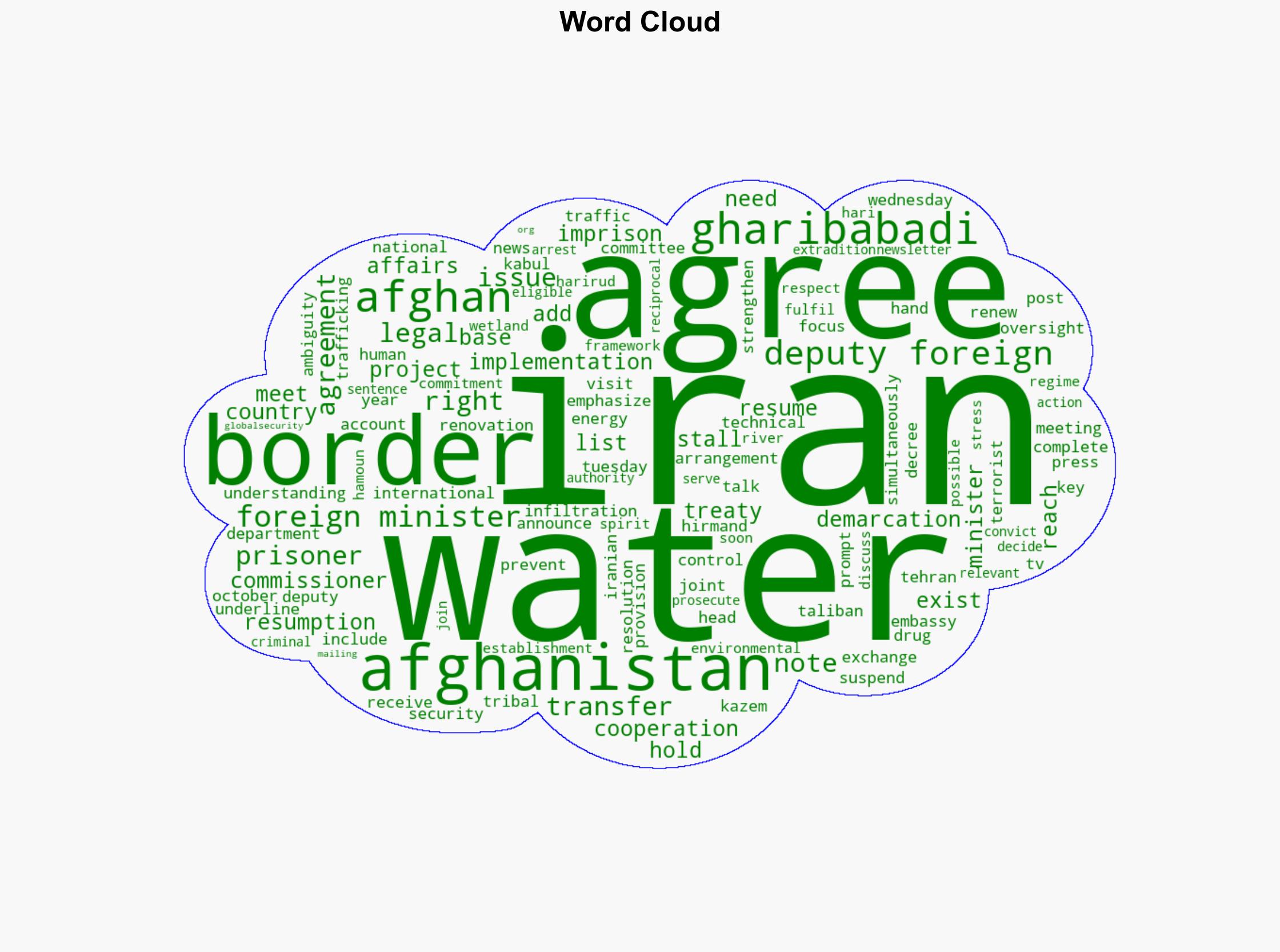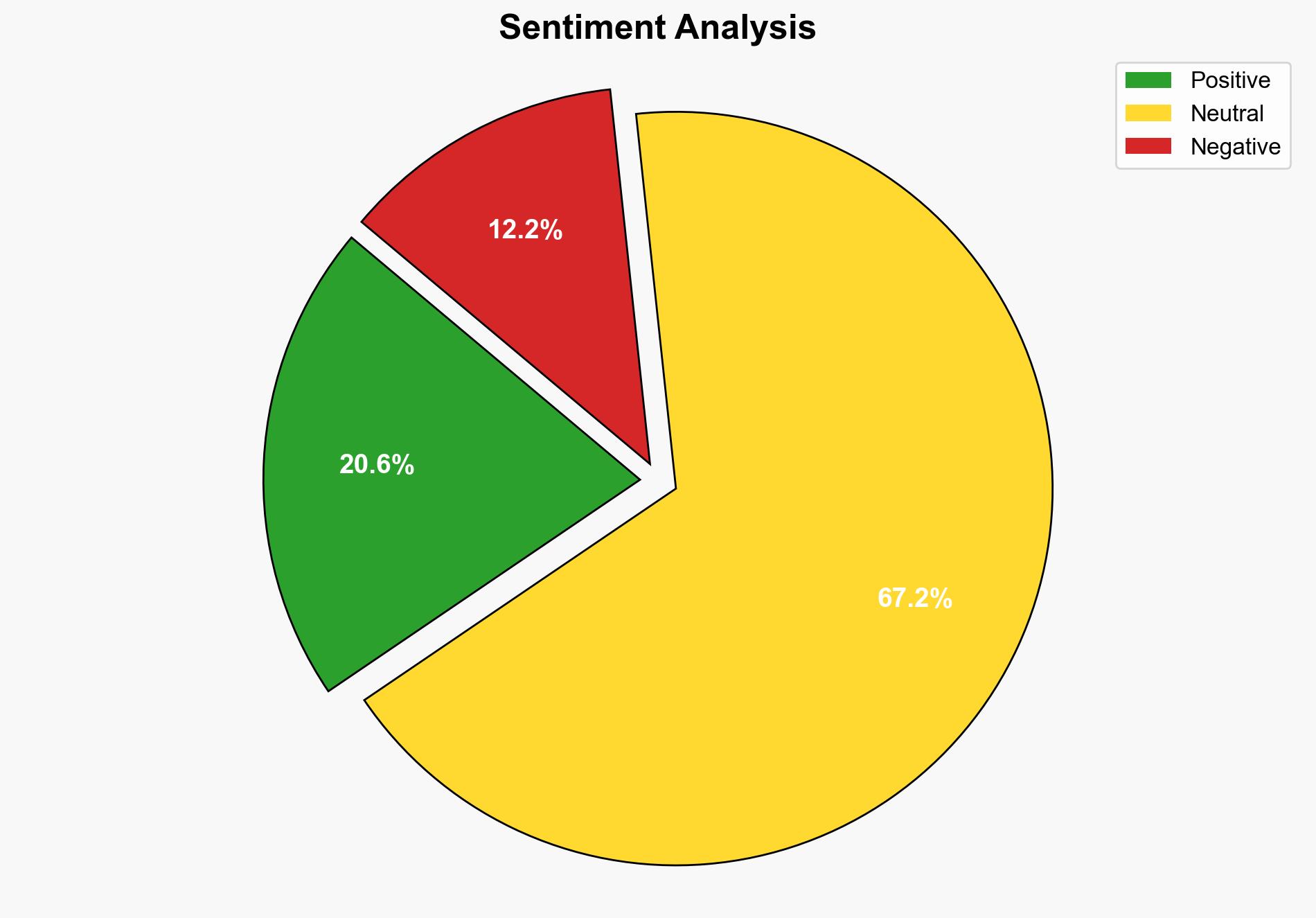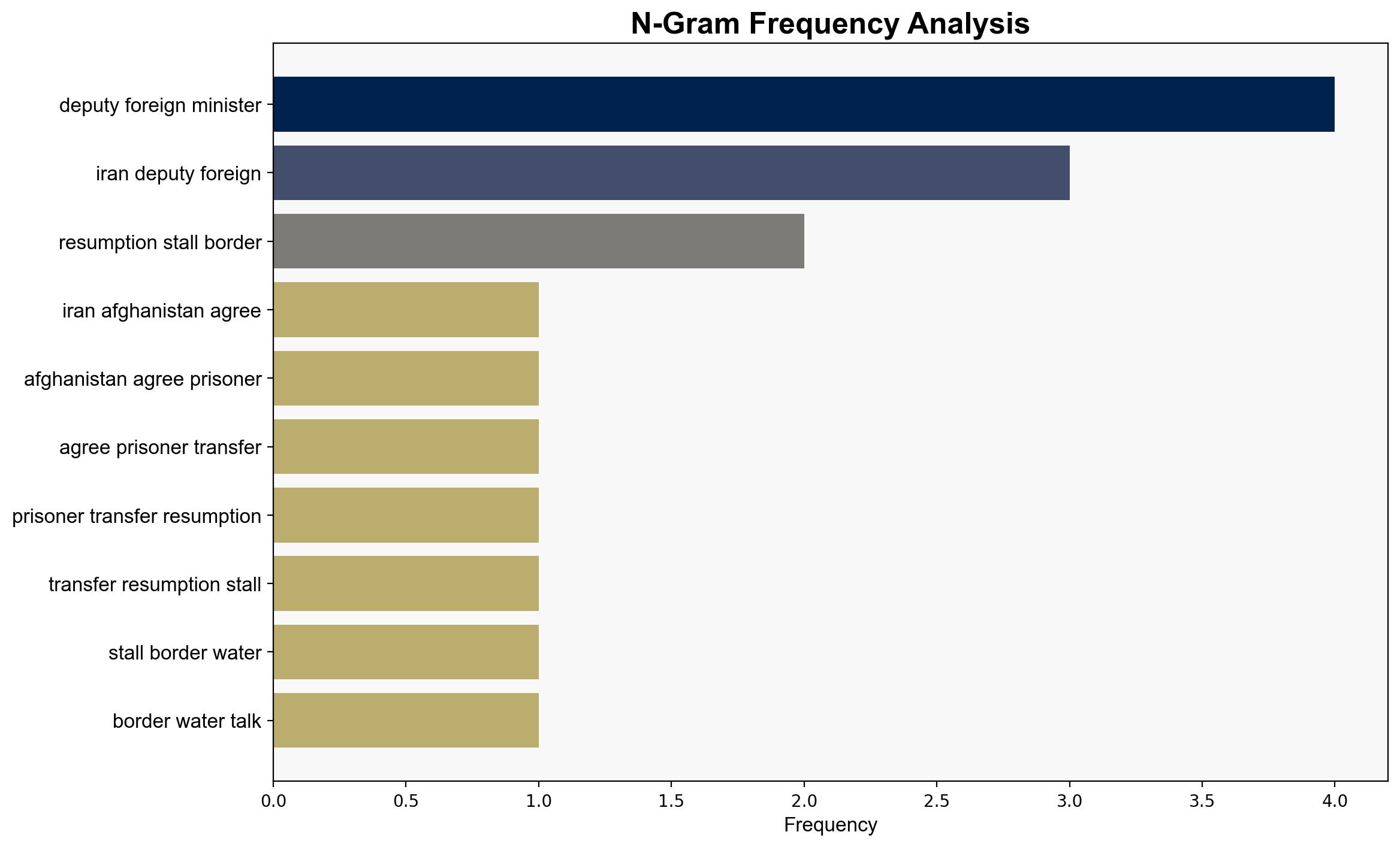Iran Afghanistan agree on prisoner transfers resumption of stalled border water talks – Globalsecurity.org
Published on: 2025-10-30
Intelligence Report: Iran Afghanistan agree on prisoner transfers resumption of stalled border water talks – Globalsecurity.org
1. BLUF (Bottom Line Up Front)
The agreement between Iran and Afghanistan on prisoner transfers and the resumption of stalled border water talks suggests a strategic alignment to address mutual concerns, potentially stabilizing regional tensions. The most supported hypothesis is that this is a genuine effort to improve bilateral relations and address shared security and environmental challenges. Confidence level: Moderate. Recommended action: Monitor the implementation of agreements and assess the impact on regional stability.
2. Competing Hypotheses
1. **Genuine Cooperation Hypothesis**: Iran and Afghanistan are sincerely working to resolve longstanding issues, including prisoner exchanges and water rights, to foster stability and cooperation.
2. **Strategic Posturing Hypothesis**: The agreement is primarily a strategic maneuver by both countries to gain international favor and leverage in broader geopolitical negotiations, with limited intent to fully implement the terms.
3. Key Assumptions and Red Flags
– **Assumptions**: Both countries have the political will and capacity to implement the agreements. The Taliban-led Afghan government is stable enough to engage in sustained diplomacy.
– **Red Flags**: Historical distrust between the nations may impede genuine cooperation. The lack of detailed implementation timelines could indicate superficial commitments.
– **Blind Spots**: Potential influence of external actors (e.g., other regional powers) on the agreement’s execution is not addressed.
4. Implications and Strategic Risks
– **Economic Risks**: Failure to resolve water rights could exacerbate resource scarcity, impacting agriculture and livelihoods.
– **Geopolitical Risks**: If the agreement is not honored, it could lead to increased tensions and destabilize the region further.
– **Security Risks**: Ineffective border control measures could allow continued drug trafficking and terrorist infiltration.
5. Recommendations and Outlook
- Encourage third-party mediation to ensure transparent implementation of agreements.
- Develop a monitoring mechanism to track progress on prisoner exchanges and water talks.
- Scenario Projections:
- Best: Full implementation leads to improved bilateral relations and regional stability.
- Worst: Breakdown in talks exacerbates tensions, leading to border conflicts.
- Most Likely: Partial implementation with ongoing negotiations and intermittent tensions.
6. Key Individuals and Entities
Kazem Gharibabadi, Taliban Department of Oversight, Iranian Embassy in Afghanistan.
7. Thematic Tags
national security threats, cybersecurity, counter-terrorism, regional focus





